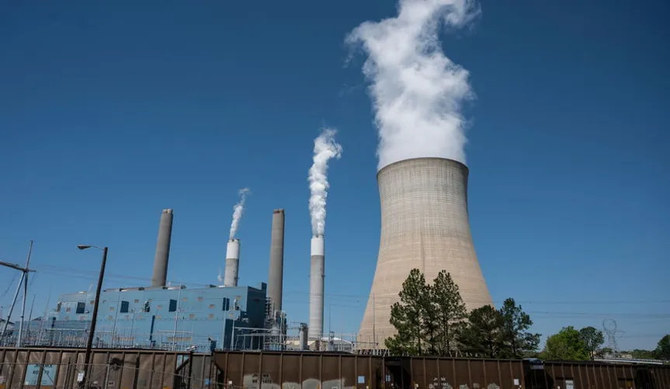Ranvir S. Nayar
A report by a reputed scientific institution in the EU last week confirmed what many of us had been feeling would be the case for a long while: that 2023 was the hottest year on record. Last year saw extended heat waves in many parts of the world, especially in temperate countries like Canada, the US and many in Europe. The scientists also said that the planet was 1.48 degrees Celsius hotter than the pre-industrial era, only 0.02 C below the 1.5 C limit set out under the Paris Agreement if the world is to have any chance of limiting the havoc being caused by global warming around the planet.
The rise in temperatures in 2023 was caused by a mix of human and natural factors, as global carbon emissions continued their rapid rise, repeating the performance of the previous two years. It looks almost certain that carbon dioxide emissions crossed all previous limits to touch 36.8 billion tonnes in 2023. The other factor contributing to the heat was the return of a rather strong El Nino phenomenon.
It is estimated that the average temperature in the year was 0.17 C higher than in 2016, the previous hottest year – an alarming rise in the context of planetary science. Most scientists agree that the 1.5 C mark will almost certainly be breached in the current year.
This news ought to have sent the global community – political leaders, businesses and governments – into a tizzy about the alarming state of the planet. Instead, within 24 hours, the news disappeared from the headlines and the world seemed to return to what it deems to be “business as usual.”
And few things could offer a better sign of large corporations treating this news as business as usual than the launch of a campaign defending the increased use of fossil fuel by “Big Oil” – the largest fossil fuel producers in the US, the country which is the biggest culprit in terms of historical emissions and where emissions, overall and per capita, remain alarmingly high. The advertising campaign, known as “Lights on Energy,” is said to have cost hundreds of millions of dollars and has already bombarded homes and streets across the US.
Its premise is that renewable energy can only do so much to provide energy security, meaning that fossil fuels are inevitable for many decades to come. It shows that the biggest businesses continue to belt out the same “there is no alternative” theory and try to package it in “scientific” and “social” terms.
The timing of the campaign was perhaps not predicated on the news about 2023 being the hottest year in history, but was rather focused on the upcoming US presidential election. Using the ongoing conflict in Gaza as cover, American fossil fuel producers have been increasing production incessantly, hitting record levels.
The oil lobby is clearly banking on a raucous presidential campaign, with its biggest friend, former President Donald Trump, seeming set – despite the legal challenges he faces – to claim the nomination of the Republican Party in the primaries that will get underway shortly. And a battle between Trump and incumbent President Joe Biden could go either way, as Biden’s current ratings are the worst of any president at this stage of his term in office.
The outcome of the presidential election will not be known for another 10 months, but the fossil fuel lobby, and not just in the US, is looking toward another year of record production. This once again shows exactly how seriously businesses, especially the big businesses that shoulder the lion’s share of the blame for the current mess facing the world, are taking the current crisis.
While the US can take much of the main blame, other large economies are not blameless either. The other biggest contributor to historical and current emissions, the EU, is also heading in the wrong direction. An analysis published by the European Commission late last month showed that the bloc is set to miss its greenhouse gas emissions reduction target for 2030. The EU has set its members a legally binding target of cutting their emissions by 55 percent compared to the levels in 1990. The latest report by the European Commission shows that member states are set to achieve only a 51 percent cut and so will violate their legal commitments. Moreover, the situation could yet worsen as not all the countries have submitted their detailed plans.
The state of affairs may not be much better in other large emitters, notably China and India, which continue to be over reliant on fossil fuels. Moreover, the political leaders of such countries say, with some justification, that they cannot achieve their developmental targets if they are forced to reduce their fossil fuel consumption, while the West had a free run for more than 200 years. They also rightly blame the rich nations for not keeping their commitments to finance the climate transition in the developing world.
Hence, a new mechanism that allows developing countries to continue to progress, albeit with a clearly diminishing reliance on fossil fuels, needs to be put in place. Such a mechanism of differentiated and deferred responsibilities, already very functional and effective in agreements like the Montreal Protocol, ought to have been set in motion already. But the developed world has not shown any real appetite to get on this road. And thanks to its business as usual attitude, one can be certain that, for many years to come, the world will keep on getting hotter and increasingly uninhabitable, with unprecedented fallout for humans and every other form of life.







